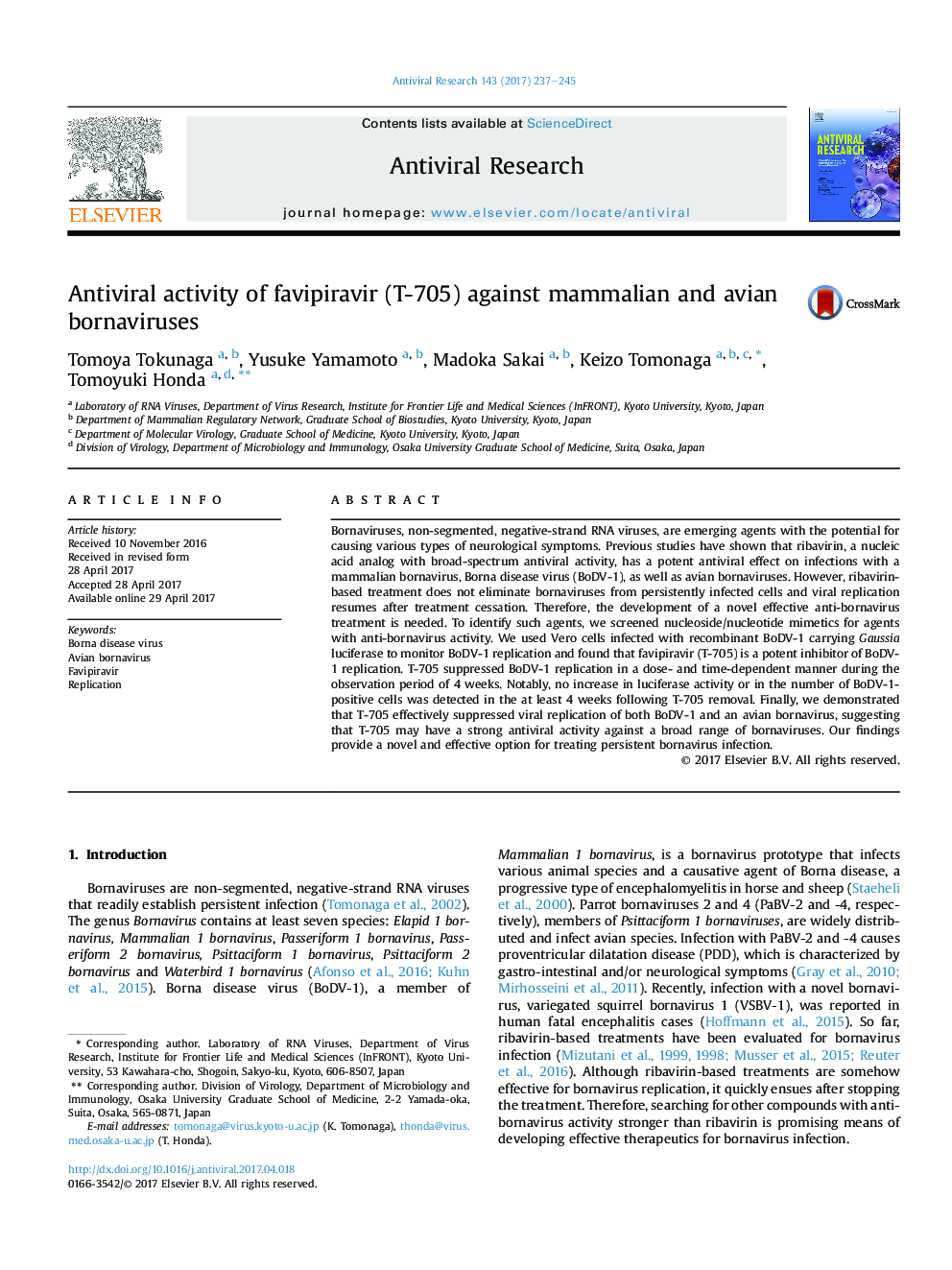| Article ID | Journal | Published Year | Pages | File Type |
|---|---|---|---|---|
| 5551782 | Antiviral Research | 2017 | 9 Pages |
â¢We established a novel Vero cells infected with recombinant BoDV-1 carrying Gaussia luciferase to monitor BoDV-1 replication.â¢T-705 suppressed BoDV-1 replication in a dose- and time-dependent manner.â¢T-705 reduced BoDV-1 load to an almost undetectable level at 28 days of treatment.â¢T-705 is a candidate antiviral against a broad range of bornaviruses.
Bornaviruses, non-segmented, negative-strand RNA viruses, are emerging agents with the potential for causing various types of neurological symptoms. Previous studies have shown that ribavirin, a nucleic acid analog with broad-spectrum antiviral activity, has a potent antiviral effect on infections with a mammalian bornavirus, Borna disease virus (BoDV-1), as well as avian bornaviruses. However, ribavirin-based treatment does not eliminate bornaviruses from persistently infected cells and viral replication resumes after treatment cessation. Therefore, the development of a novel effective anti-bornavirus treatment is needed. To identify such agents, we screened nucleoside/nucleotide mimetics for agents with anti-bornavirus activity. We used Vero cells infected with recombinant BoDV-1 carrying Gaussia luciferase to monitor BoDV-1 replication and found that favipiravir (T-705) is a potent inhibitor of BoDV-1 replication. T-705 suppressed BoDV-1 replication in a dose- and time-dependent manner during the observation period of 4 weeks. Notably, no increase in luciferase activity or in the number of BoDV-1-positive cells was detected in the at least 4 weeks following T-705 removal. Finally, we demonstrated that T-705 effectively suppressed viral replication of both BoDV-1 and an avian bornavirus, suggesting that T-705 may have a strong antiviral activity against a broad range of bornaviruses. Our findings provide a novel and effective option for treating persistent bornavirus infection.
